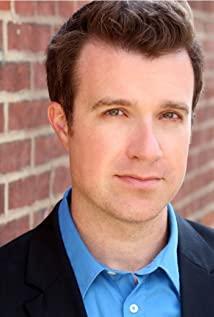1 How did the abortion movie win the Berlin Silver Bear which favors political films?
The director claims that the film will be talked about for a whole year, and has just won the Silver Bear Jury Prize at the Berlin Film Festival. Since you can see the resources today, let’s start to interpret it immediately.
In fact, after watching the movie, you will find that the plot of the film can be described in a simple way. It tells about the unintended pregnancy of the underage heroine Autumn. Because of the restrictions on abortion in her home state of Pennsylvania , she can only bring her cousin Skylar to New York for an abortion. story. The director has been following the journey of the two people in an almost line-drawn way, trying his best to realistically restore the plight of adolescent girls when they are facing unexpected pregnancy. Of course, Pennsylvania law, which requires a minor to have an abortion with one of her parents, was what motivated her to embark on the journey.
Of course, in order to understand the background of the film and the director's intentions, some historical and political knowledge is still needed, after all, this is an award-winning film in Berlin, which prefers politics. The director made it for the American audience, and the film is obviously critical of Trump , especially growing up in a country with less restrictions on abortion, it is even more difficult to understand the plight of the heroine in the film. After all, our In youth films such as "You at the Same Table", abortion is so extensive in it that now we always want to ask when watching youth films— why don't you have an abortion? ?
Let's first look at the relative positions of Pennsylvania and New York, and understand why two people who have no money travel back and forth by bus.
Closer to home, this is a serious film review, let's look at it one by one.
2 It turns out that having an abortion is a privilege
Before the 1970s, abortion was illegal in most states in the United States, and many middle-class women had to go to California, which was less restrictive at the time, or go abroad to legally operate in places such as Puerto Rico.
In 1970, a Texas woman, Jane Roe (pseudonym), conceived out of wedlock and wanted an abortion, but had an abortion without endangering the life of the mother, which was banned in Texas at the time, and she couldn't afford to travel to other states that allowed abortion. cost of. So she filed a lawsuit against the local county attorney that year, known as " Roe VS Wade "
The case then went all the way to the Supreme Court, and in 1973 nine justices ruled 7-2 that the law prohibiting abortion was unconstitutional . Specifically, women can decide whether to have an abortion within 3 months of pregnancy, and the state government can impose certain restrictions on abortion within 4 to 6 months of pregnancy. Abortion is still not allowed in the third trimester of pregnancy from 7 to 9 months.
(The heroine in the film is 18 weeks pregnant, which is the second trimester, so there are a lot of procedures to go through, and it is necessary to repeatedly confirm whether it is voluntary)
This result, which was unexpected by many, was a milestone victory for the liberals at the time, and, together with the "You have the right to remain silent" Miranda decree, marked the 1960s and 1970s in the United States. effort.
Since then, pro- and anti-abortion groups have been radically divided, and this stance has shaped politics, and abortion remains one of several central issues in elections at every level in the United States today.
Pro-choices are generally referred to as pro-choice, that is, the claim that emphasizes women's body privacy and autonomy . Generally speaking, the Democrats who hold liberal views in the United States now pursue this proposition.
And the position against abortion, that is , the claim that emphasizes the right to life of the fetus, is called pro-life, that is, the life faction . Generally speaking, the conservative Republican Party in the United States now pursues this proposition.
Let's take a brief look at the main arguments of the two factions.
Because Chinese people are accustomed to the legalization of abortion, let us first look at the arguments of pro-choice, the pro-choice faction. They believe that the fetus is a part of the female body before it is born , so since people undoubtedly have the right to decide their own body, for example, I can choose where I go, and I can decide to have beauty on my face and perform surgery on my body. Then obviously it is also free to decide whether or not to have an abortion.
What about the opposing pro-life view of abortion? First of all, for the devout Christians who believe in Christianity, this is a religious and moral issue. They raise objections from the Bible. Maybe everyone is not interested in this objection, so I won’t expand it here.
Mainly look at the second point, which is to regard the fetus in the womb as an independent life body , then killing a life is obviously like killing a life, which is naturally wrong. They will also take pictures of the baby at 3 months to prove that the fetus has a heartbeat at this time, and many organs have begun to take shape. And they often use terms like "knock on the head" to describe the abortion process, and the propaganda works well.
So the crux of the question becomes when does the fetus count as part of the mother's body and when does it become an independent living body? The Supreme Court's 1973 decision to divide pregnancy into three stages is undoubtedly a conciliatory result in nature.
Which side do you agree with?
In fact, this issue has gone far beyond medical debates, and even more beyond theological and sociological debates, because it involves politics, and both Republican and Democratic candidates in American elections must take a clear line on this issue. Only Republicans who oppose abortion can get the votes of Christians and conservatives, and corresponding Democrats can only get the votes of female egalitarians or the majority of women only if they support abortion.
What further drove the director to make this film is that after 1973, many people in the United States tried to overturn the Roe v. Wade case, and conservatives pushed many states to push for more and more strict restrictions on abortion. And if you want to reverse the case, the most important thing is the attitude of the Supreme Court justice.
Explain that there are a total of 9 Supreme Judges, all of whom serve for life. If Republicans want to reverse the case, they must send conservative justices to the Supreme Court, so that the number of judges who oppose abortion is greater than or equal to five .
Although conservatives have held the majority in the Supreme Court several times over the past few decades, due to various reasons, I will not repeat them here. In short, the verdict has not been overturned so far, but the requirements for abortion have been tightened. For example, there are currently 7 In the state, there is actually only one clinic or hospital that provides abortion services.
Since Trump took office, he has also sought to reverse the case, and he has also adopted the strategy of sending conservative justices. Since two of the liberal justices are now over 80 years old, Trump has a good chance of sending 2 conservatives again. Judge , this does not count Chief Justice Roberts, who is now relatively neutral. The High Court will present a 6-2 situation, so there is great hope for overturning the case.
This is also an important background for the director of the film to shoot this film. Although the director in the film is realistic, his attitude towards the two girls is undoubtedly very warm, and he is undoubtedly critical of the current Pennsylvania regulations.
3 "Never, Rarely, Sometimes, Always" = "Juno" + "Two Days in Three Weeks in April"?
The subject of abortion in this film is undoubtedly reminiscent of "Juno" and "Two Days in Three Weeks in April" of the same theme .
"Juno" uses a witty and humorous tone. In the film, Juno, an underage girl who also became pregnant unexpectedly, with the support of everyone, gave the child to another family for adoption after giving birth. In addition to the fact that it feels unrealistic that all the people around support the heroine, the fundamental problem is that it does not touch the theme of abortion, which may be the reason why the film is so successful in the United States.
And the more realistic Romanian film, "April Three Weeks Two Days" is in 1981 when abortion was illegal in the country. It describes a girl who had been pregnant for four months, three weeks and two days and had to find someone to have an illegal abortion. The story, the film's lens features are especially like "Never, Rarely, Sometimes, Always", and the whole is a long-lens perspective to observe the plight of the two sisters who are also the same.
This film has the living America in "Juno" and the struggles in "Two Days in Three Weeks in April".
Of course, this film not only discusses the issue of abortion. In fact, the director's ambition is far more than that. The film also has extensive discussions on the plight of women in daily life.
For example, the skylar who is cashier in the supermarket has to take the trouble to reject cheeky party boys, and the camera also takes care of the deep scars caused by the bra on the heroine. When Skylar asked her if she'd ever thought about being a boy, Autumn answered without hesitation—often.
This kind of subtle and silent technique is much more straightforward than last year's hit "Jin Zhiying Born in 1982". Allowing the audience to understand for themselves is always more useful than preaching.
But at the same time, skylar also took advantage of boys' good feelings towards them and borrowed money from them, so it is very complicated to say whether women are strong or weak in society. If they were always weak, there would not be so many boys thinking about chasing girls every day.
Of course, I have to mention the title of the film. In fact, these are several options for the heroine to answer the pre-abortion questionnaire. Of course, this is also the time when the heroine is at the most intense emotion in the whole film. Because we know from question after question that the heroine has experienced abuse. In fact, the lyrics of the female lead singer at the beginning contain related meanings. So this child is likely to be conceived after the other party refused to use condoms and treated the heroine violently , so that we can better understand the heroine's decision to want an abortion.
The debate on whether the law should ban abortion should continue. Even in our country, there are relevant regulations prohibiting abortion because of the sex of the fetus. However, no matter how the debate is, respect and care for each individual and comprehensive consideration of the whole are impossible. Less. When one thinks that a country has a large population, forced abortion will cause great problems. Similarly, when one thinks that the population is small, forced childbirth is even more wrong.
View more about Never Rarely Sometimes Always reviews











